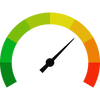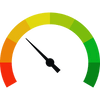


Published: Monday, 21th October 2024
The Standard of living in Pakistan is 2.88 times lesser as compared to Germany.
In this page, you will find side-by-side Standard of Living comparison between Pakistan and Germany. We have created 53 standard-of-living indicators. We average the values and ranges of all those indicators and take a mathematically calculated approach to determine which country has a better standard of living between Pakistan and Germany.
 Indicators  |  Pakistan  |  Germany  |
|---|---|---|
Gross Domestic Product (GDP)(2023)  | $338.237 billion USD | $4.591 trillion USD |
GDP Per Capita (2023)  | 1,461 USD | 54,291 USD |
GINI Ratio (2023)  | 0.30 | 0.29 |
Inflation on Consumer Prices (2023)  | 30.77 % annually | 5.95 % annually |
Central Government Debt (2023)  | 55 % of GDP | 20.9 % of GDP |
Gross Domestic Product (GDP) is a measure of the total value of all goods and services produced within a country in a specific time period, usually a year. It is used to gauge the economic performance of a country and indicates how wealthy and productive a nation is. In simple terms, GDP tells us how much a country is producing and how well its economy is doing.
As per the statistics from the World Bank Data for the year 2023, the total GDP of Pakistan is $338.237 billion USD and that of Germany is $4.591 trillion USD.
On the other hand, Gross Domestic Product (GDP) Per Capita is the average economic output per person in a country. Simply put, it shows how much, on average, each person contributes to the economy, giving an idea of the standard of living and economic well-being of the people in that country.
From the above data, we can say that a person living and working in Pakistan contributes less to the country's economy compared to a person working in Germany.
 Indicators  |  Pakistan  |  Germany  |
|---|---|---|
Human Development Index (HDI) (2024)  | 0.540 | 0.950 |
Human Capital Index (HCI) (2024)  | 0.41 | 0.75 |
Literacy Rate (2023)  | 58% (15 years+ above age) | 99% (15 years+ above age) |
Life Expectancy Ratio (2023)  | 66 years | 80.5 years |
Healthy Life Expectancy Ratio (2023)  | 56.9 years | 68.9 years |
Poverty Ratio (2023)  | 21.9% of total Population | 14.8% of total Population |
Unemployment Rate (2023)  | 5.5% of total labor force | 3.04% of total labor force |
The Human Development Index (HDI) is a measure used to assess the overall well-being and quality of life of people living in a country. The key dimensions that give a country good HDI rank are a long and healthy life, being knowledgeable and having a decent standard of living.
From the above given statistics, we can see that the HDI of Pakistan is [ 0.540 ] and the HDI of Germany is [ 0.950 ].
The data shows that the people living in Pakistan has lower income, life expectancy and education level compared to Germany.
 Indicators  |  Pakistan  |  Germany  |
|---|---|---|
Gross National Expenditure (2023)  | 107.33 % of GDP | 95.84 % of GDP |
Total Health Expenditure (2023)  | 2.91 % of GDP | 12.93 % of GDP |
Research and Development Expenditure (2023)  | 0.16 % of GDP | 3.14 % of GDP |
Government Expenditure on Education (2023)  | 1.69 % of GDP | 4.54 % of GDP |
International Tourism Expenditure (2023)  | 1,245 million USD | 101,231 million USD |
Number of International Tourists Arrivals (2023)  | 966,000 | 12,449,000 |
Military Expenditure (2023)  | 2.63 % of GDP | 1.39 (% of GDP) |
The total Gross National Expenditure of Pakistan is 107.33% of its GDP and the total Gross National Expenditure of Germany is 95.84% of its GDP.
From the above data, we can say that Pakistan spends 1.12 times more of its GDP on Gross National Expenditure compared to Germany.
 Indicators  |  Pakistan  |  Germany  |
|---|---|---|
Number of Doctors (2023)  | 10.8 (Per 10,000 People) | 45.2 (Per 10,000 People) |
Number of Nurses (2023)  | 4.69 (Per 10,000 People) | 123 (Per 10,000 People) |
Number of Pharmacists (2023)  | 1.51 (Per 10,000 People) | 6.72 (Per 10,000 People) |
Available Hospital Beds (2023)  | 0.63 (Per 1000 People) | 8 (Per 1000 People) |
Pregnant Women Receiving Prenatal Care (2023)  | 91.2 % of total Population | 100 % of total Population |
Pakistan has 4.19 times less Doctors compared to Germany (Per 10,000 People).
Pakistan has 26.23 times less Nurses compared to Germany (Per 10,000 People).
 Indicators  |  Pakistan  |  Germany  |
|---|---|---|
Agricultural Land (2023)  | 363,030 Sq Km | 165,910 Sq Km |
Forest Area (2023)  | 36,845.6 Sq Km | 114,190 Sq Km |
CO2 Emissions (2023)  | 0.16 kg per PPP $ of GDP | 0.13 kg per PPP $ of GDP |
Access to Electricity (2023)  | 95 % of total Population | 100 % of total Population |
Access to Internet (2023)  | 21.04 % of total Population | 91.63 % of total Population |
Annual Fresh Water Withdrawals (2023)  | 189.59 Billion cubic meters | 24.44 Billion cubic meters |
95% of the total Population of Pakistan has access to the electricity in their homes, whereas, in case of Germany, 100% of the total Population has access to electricity.
 Indicators  |  Pakistan  |  Germany  |
|---|---|---|
Time Required to Start a Business (2023)  | 16.5 Days | 8 Days |
New Businesses Registered (2023)  | 26,901 (New Businesses) | 74,773 (New Businesses) |
New Businesses Registration Density (2023)  | 0.19 (Per 1000 People) | 1.4 (Per 1000 People) |
Cost of Business Start-Up Procedures (2023)  | 6.7 % of GNI Per Capita | 6.5 % of GNI Per Capita |
In the year 2023, 26,901 new businesses got registered in Pakistan and 74,773 new businesses got registered in Germany.
It usually takes 16.5 days in Pakistan and 8 days in Germany to register a new business legally and systematically.
 Indicators  |  Pakistan  |  Germany  |
|---|---|---|
Imports of Goods and Services (2023)  | 17.72 % of GDP | 42.97 % of GDP |
Total Fuel Imports (2023)  | 33.46 % of Merchandise Imports | 8.63 % of Merchandise Imports |
Cost to Import Border Compliance (2023)  | 287 USD | Yet to Update |
Time to Import Border Compliance (2023)  | 120 Hours | Yet to Update |
Cost to Import Documentary Compliance (2023)  | 130 USD | Yet to Update |
Time to Import Documentary Compliance (2023)  | 96 Hours | 0.5 Hour |
 Indicators  |  Pakistan  |  Germany  |
|---|---|---|
Exports of Goods and Services (2023)  | 10.39 % of GDP | 47.14 % of GDP |
Total Fuel Exports (2023)  | 0.58 % of Merchandise Exports | 2.08 % of Merchandise Exports |
Cost to Export Border Compliance (2023)  | 288 USD | 345 USD |
Time to Export Border Compliance (2023)  | 58 Hours | 36 Hours |
Cost to Export Documentary Compliance (2023)  | 118 USD | 45 USD |
Time to Export Documentary Compliance (2023)  | 55 Hours | 1 Hour |
 Indicators  |  Pakistan  |  Germany  |
|---|---|---|
Gross National Savings (2023)  | 12.95 % of GDP | 30.17 % of GDP |
Tax Revenue (2023)  | 7.5 % of GDP | 11.23 % of GDP |
Taxes on Exports (2023)  | 1.43 % of Tax Revenue | Yet to Update |
Taxes on Goods and Services (2023)  | 30.3 % of Tax Revenue | 20.5 % of Tax Revenue |
Taxes on International Trade (2023)  | 10.83 % of Revenue | 0.01 % of Revenue |
Time to Prepare and Pay Taxes (2023)  | 283 Hours | 218 Hours |
Customs and Other Import Duties (2023)  | 15.97 % of Tax Revenue | 0.02 % of Tax Revenue |
The taxes charged by Pakistan on international trade is 10.83% of the total revenue and the taxes charged by Germany on international trade is 0.01% of the total revenue.
The Taxes charged on International Trade by Pakistan is 1083.00 times more of its total revenue than of Germany.
We hope you enjoyed the detailed guide on the standard of living comparsion between Pakistan and Germany.
For more side-by-side comparsion between Countries, States and Cities, you can use the search box above or click the links below.
The Comparedoo.com family sincerely appreciates your time with us. We look forward to seeing you on our other pages.